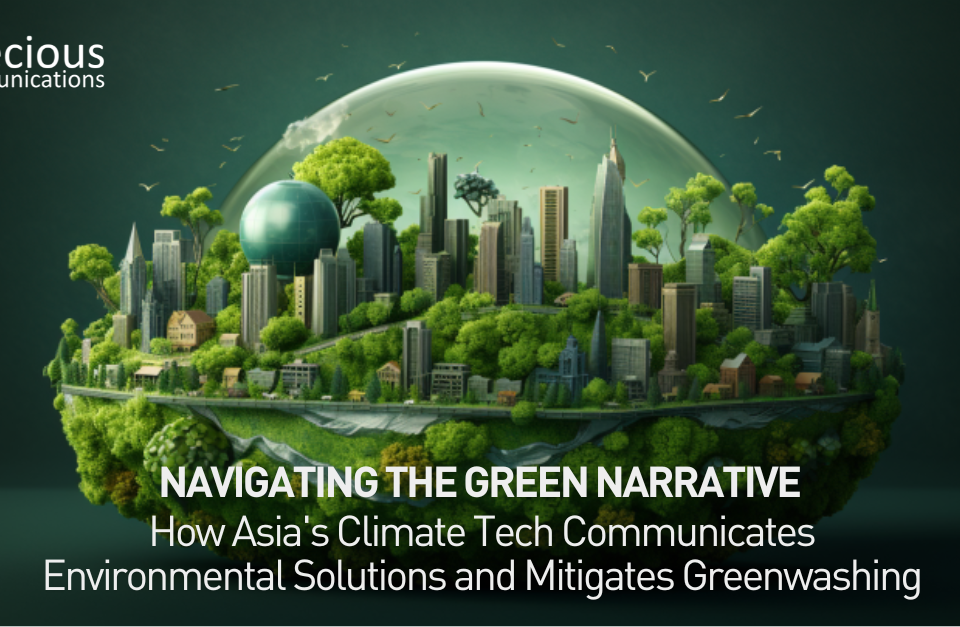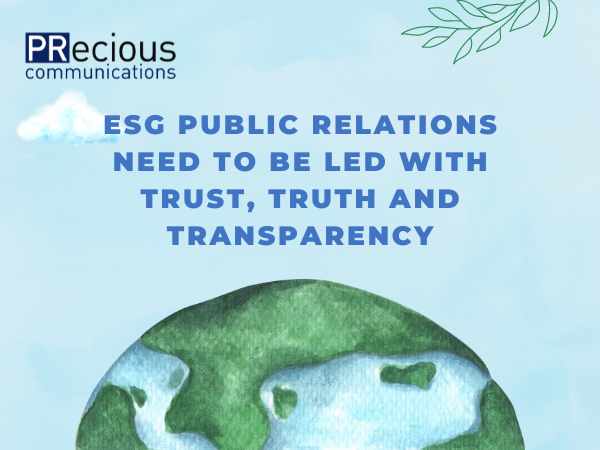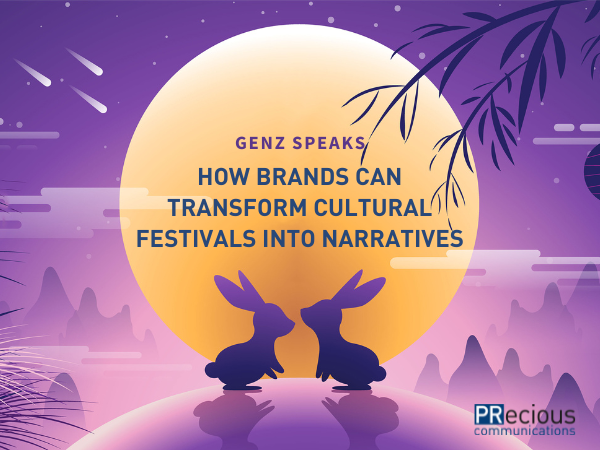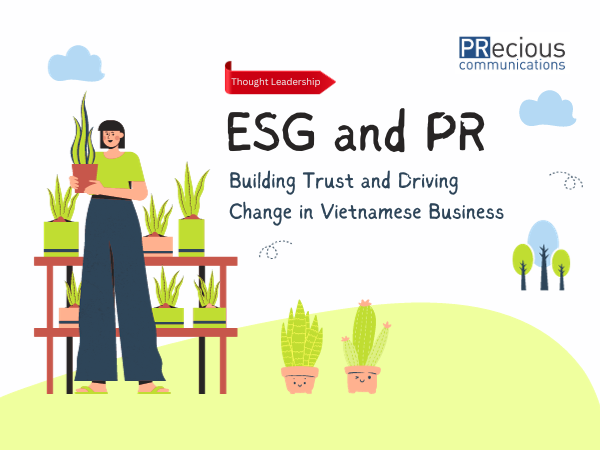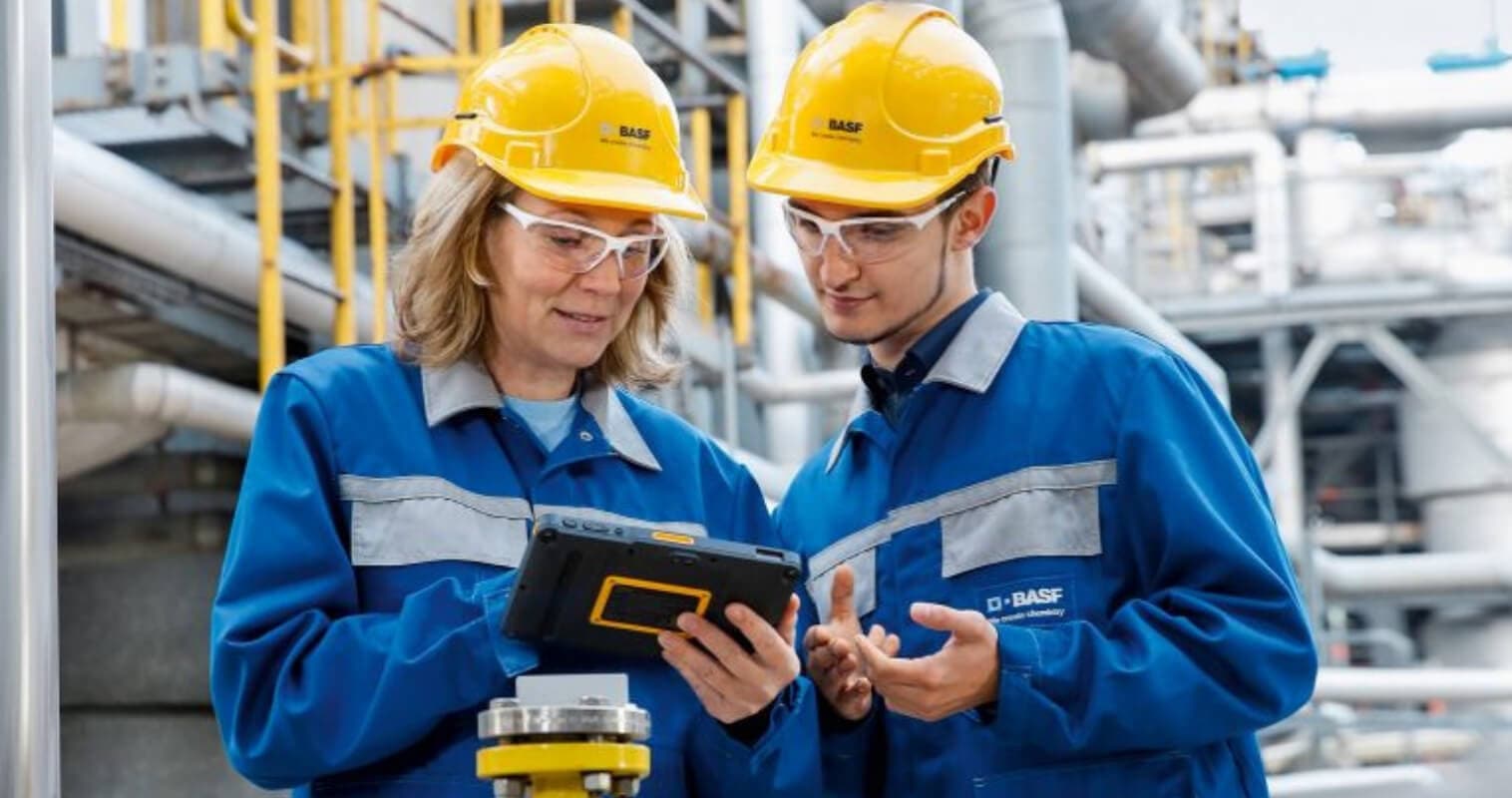A Force for Good: Impact Investing and the Power of Communications in Asia

Memaknai 76 Tahun Kemerdekaan Indonesia di Tengah Pandemi
August 17, 2021
In Retrospect: Tokyo 2020
August 30, 2021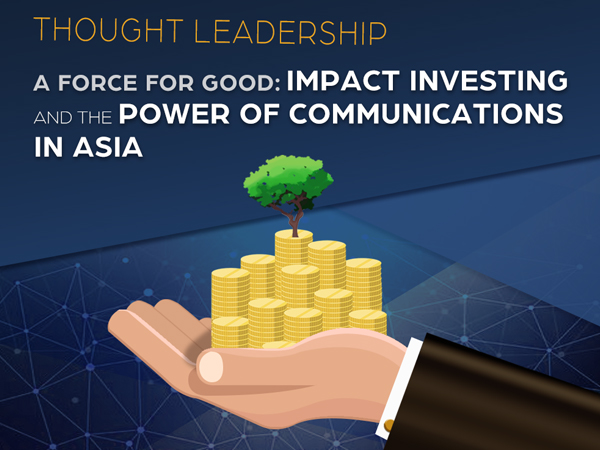
The onslaught of Covid-19 has caused significant distress and disruption globally, with nations going into lockdowns and businesses and healthcare systems upended by the pandemic. But we can see a silver lining amid the havoc: Despite a universally challenging 2020, Covid-19 has put a spotlight on the need to dispel inequality while creating greater consciousness on impact.
Last year may very well have been an inflection point for impact investing, defined by “the intention to generate positive and measurable social and environmental impacts alongside financial returns.” In working with clients — both VC firms and startups in Asia — to help shape and sharpen their communications strategies around impact investing, we see favourable factors driving the growth of Asia Pacific’s impact investing ecosystem. For one, millennials — who primarily make up the global impact investing population — are quickly rising up the ranks and taking on more decision-making roles as they approach their 30s and 40s.
As nations grapple with Covid-19, coalitions continue to form to mobilise the wider impact investing community and improve the accessibility of impact investments in Asia — particularly those focused on healthcare. Currently, according to an Impact Investing in Asia report, “16 percent of global impact investment assets under management (AUM) are allocated to East, South, and Southeast Asia, compared to 28 percent of AUM allocated to the U.S. and Canada.”
But what is impact investing, and why is it making waves across Asia and the world? Is it just another marketing gimmick, or is it fast becoming a force that has the potential to truly drive positive change?
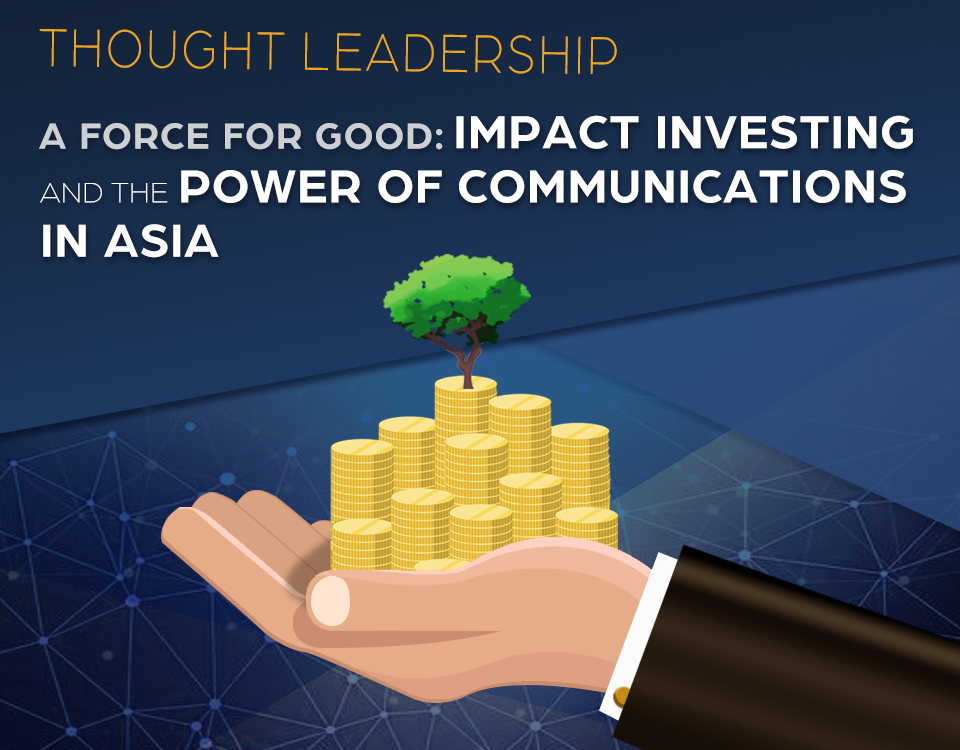
Demystifying Impact Investing
Two decades ago, we saw the rise of environmental, social and corporate governance (ESG) investing, as more socially conscious investors screened potential investments using a set of standards. The ESG movement primarily revolved around the premise of avoiding harm by simply boycotting investments that don’t adhere to ESG principles.
With the rise of sustainability advocates, we’ve seen another movement gaining ground and taking the ESG movement up a notch: impact investing, which focuses on proactively deploying capital directed toward addressing specific, measurable societal and environmental objectives while generating economic returns.
Today we are seeing a massive shift in ideators’ and impact investors’ behaviour as they realise and experience the impact of Covid-19 in their own local communities. Founders have become more inclined to generate capital to address local issues, and impact investors are keener to support local projects.
While impact investing has been around for a few years, it took on a whole new level of significance and meaning as Covid-19 exposed inadequacies in healthcare, food, water, and sanitation systems and caused a steep decline in living standards. As countries around the world plunged into recession, various concerns resurfaced, prompting immediate response and action in line with realising the United Nations’ Agenda 2030 sustainable goals.
Southeast Asia’s emerging countries, whose economies were among those hit hardest by the pandemic, especially shed light on the necessity to resolve pressing issues — ranging from livelihood to healthcare access — through innovative solutions. And on the other end of the spectrum, startup founders have taken the bait, responding with fresh ideas.
While a decade ago there was no pathway to connect innovators with the necessary tools to go beyond the ideation phase, today’s thriving innovation ecosystem has made it easier for startup founders around the world to find expertise and capital through incubators and accelerators and to create a significant difference in specific communities.
Innovation has clearly become the lifeblood of sustainable development, with impact investing increasingly becoming the vehicle to mobilise resources across sectors. In the face of a global pandemic, never has it been more pressing to accelerate the adoption of sustainable solutions while simultaneously driving various funding initiatives that address or mitigate the impact of the Covid-19 outbreak on various levels.
Propelling Impact Investing Movement Through Communications
Covid-19, along with heightened attention around climate issues, may have set the stage for increased interest around impact investing in Asia, but there remains a lot of work to be done to unleash the massive potential of using capital for good. But beyond optimal resource mobilisation, the success of impact investing in the region also hinges on setting the right expectations and addressing misconceptions. Goals need to be clarified, and potential impact investors need to refrain from jumping the gun to prevent massive disillusionment. Especially when treading on unfamiliar terrain, stakeholders need the proper education so as to be directed toward the right path.
And this is where communications can serve as a catalyst that connects various stakeholders across the impact investing value chain, accelerating the completion of various funding objectives. Generating awareness around funding projects can significantly enhance the speed of capital movements and streamline an otherwise long-winded process of matching impact investors and funding opportunities, laying the groundwork for impact investing success.
Want to take your story to the next level and drive impact in communities? Reach out to our team – and learn how you can leverage communications to raise visibility and credibility while inspiring positive change in Asia.
